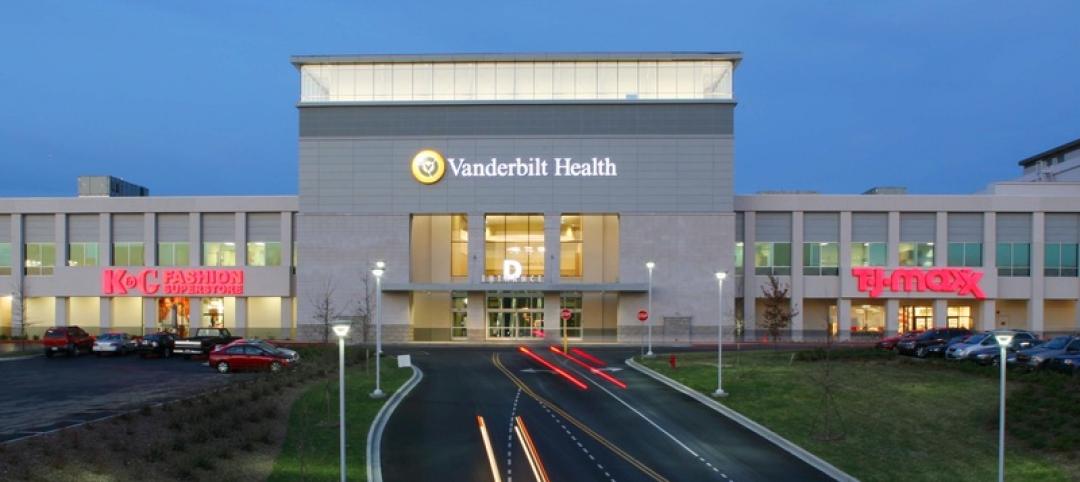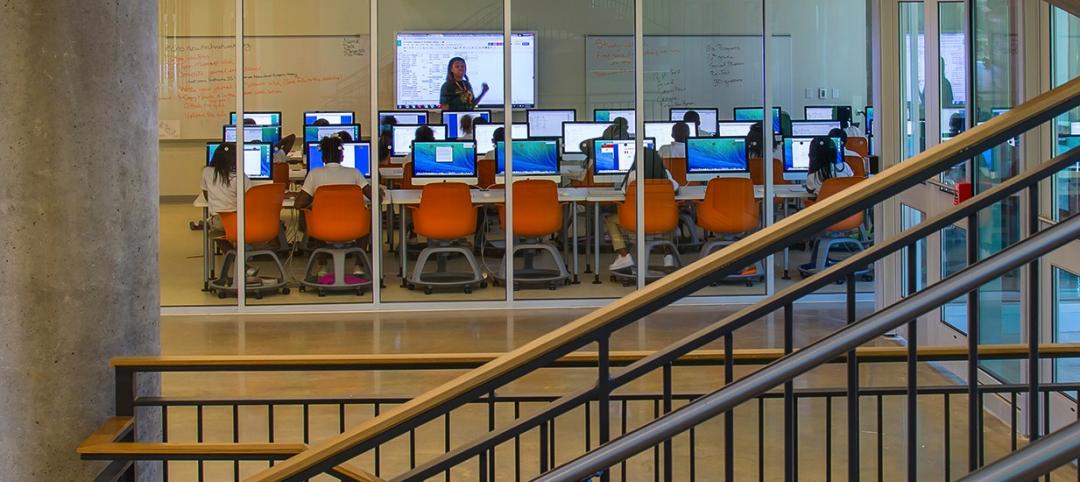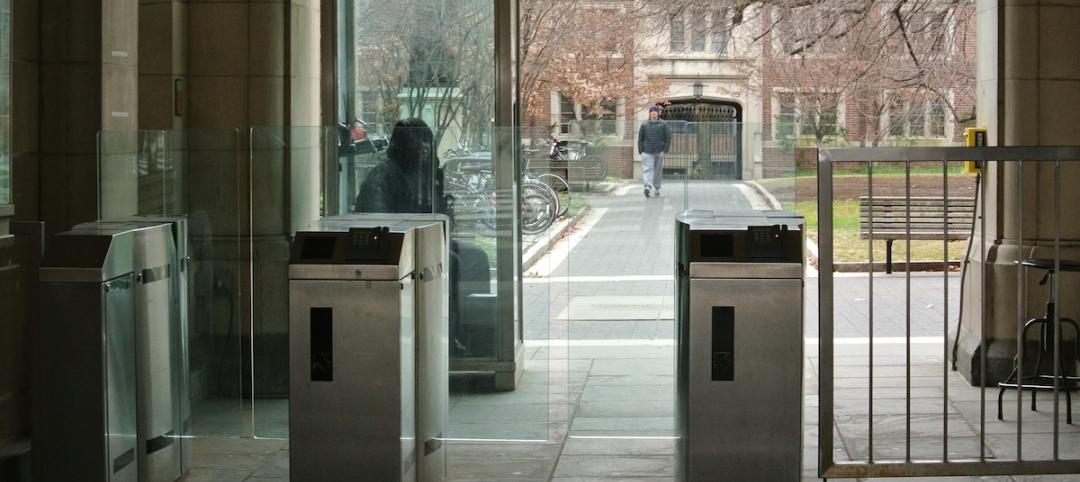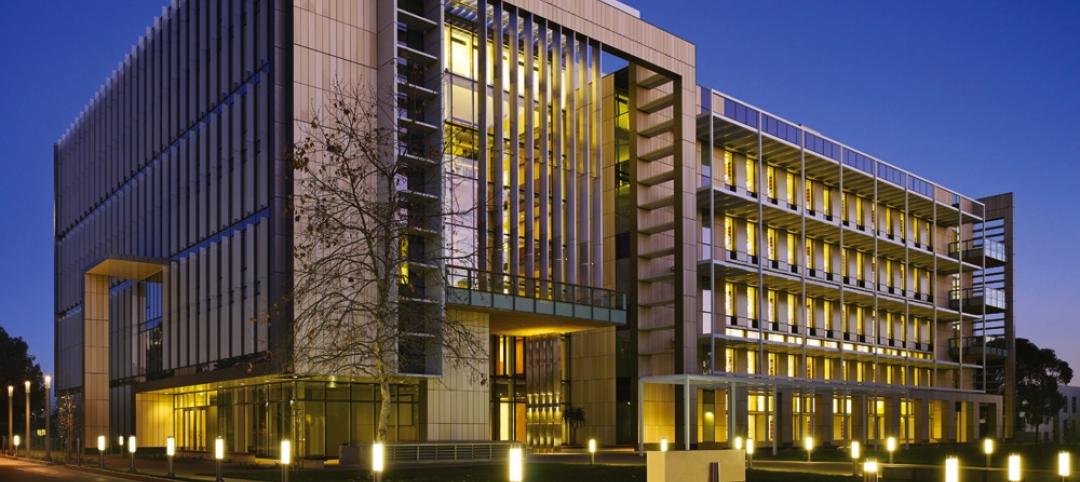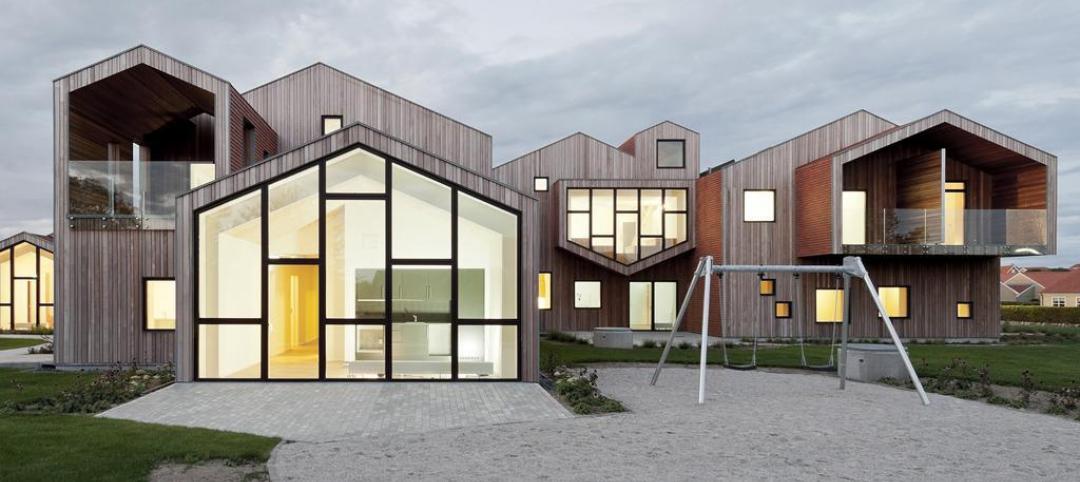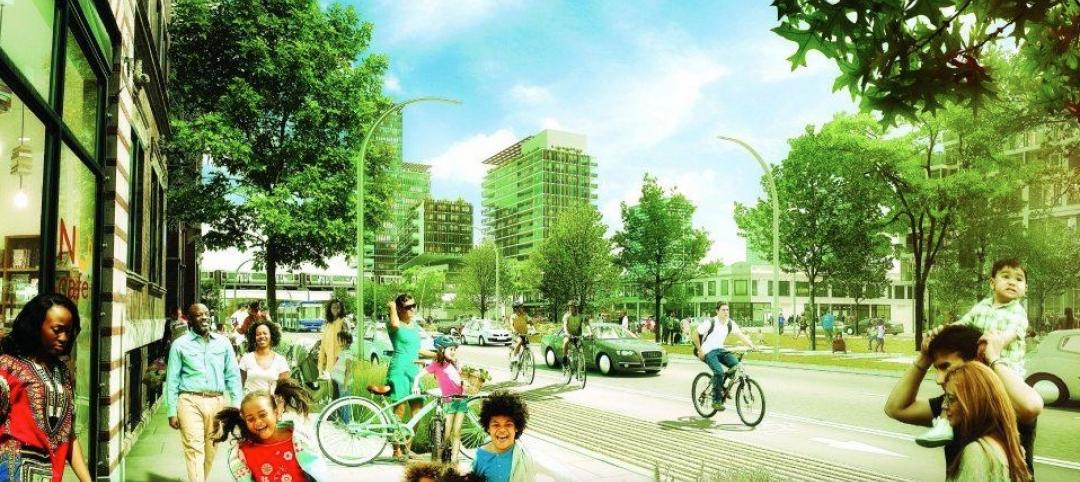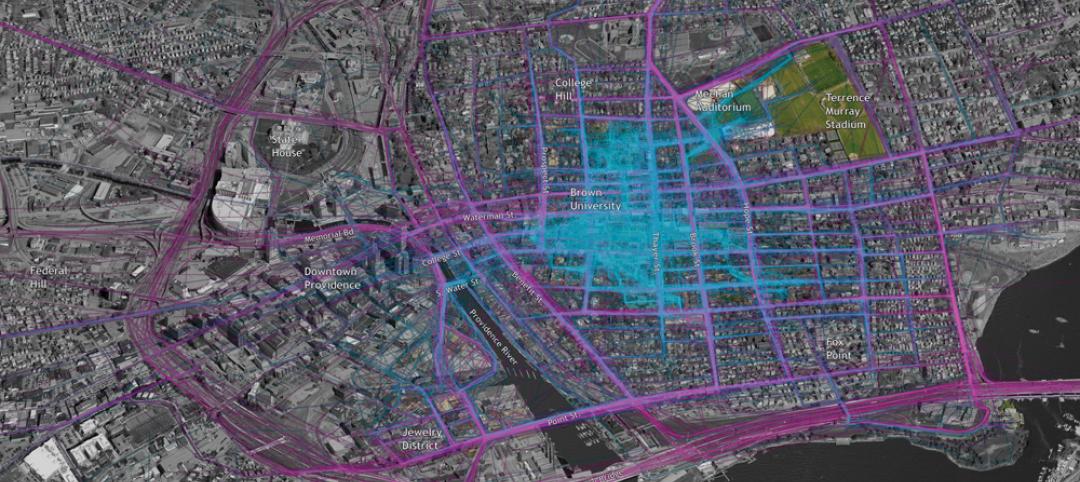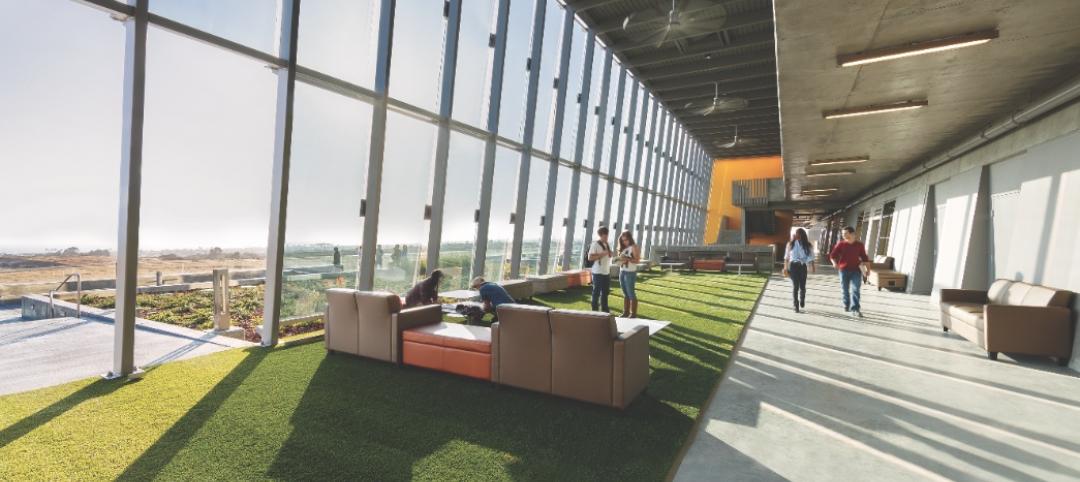Virginia Commonwealth University’s VCU Health broke ground June 22 on the largest capital construction project in its history, a $349.2 million outpatient facility on the university’s Richmond campus that, upon completion in the summer of 2020, will consolidate most of the VCU Massey Cancer Center’s outpatient services within 16 stories and 603,000 sf.
This space is intended to become a hub for comprehensive outpatient healthcare. It will include on-site lab services, medical imaging, women’s services, and rehabilitation services for physical, occupational, and speech therapies. VCU Health’s outpatient orthopedics, pulmonary and urology, will also relocate to the new building, which will feature a dedicated tower for ambulatory oncology care. VCU Massey Cancer Center will have its own entrance, lobby, elevators, clinics, radiation and infusion treatment areas, patient resource spaces, and valet and self-parking areas.
The outpatient facility—which will be on the site once occupied by the Virginia Treatment Center for Children—will include a 472,000-sf parking deck for more than 1,000 vehicles. (The Treatment Center for Children will relocate to the Children’s Hospital at VCU’s Brook Road campus.)
“The oncology tower will be the new hub for most of our cancer services downtown,” says Gordon Ginder, M.D., director of VCU Massey Cancer Center. “Our goal is to create a welcoming, healing environment with easier access, improved patient flow and soothing aesthetics.”
Sandy Tkacz, AIA, ACHA, EDAC, health principal with HDR, the project’s designer, notes that the ambulatory tower “will not only allow patients to have all of these services integrated in the same location for easy navigation, but also change the Richmond skyline and the face of the city.”
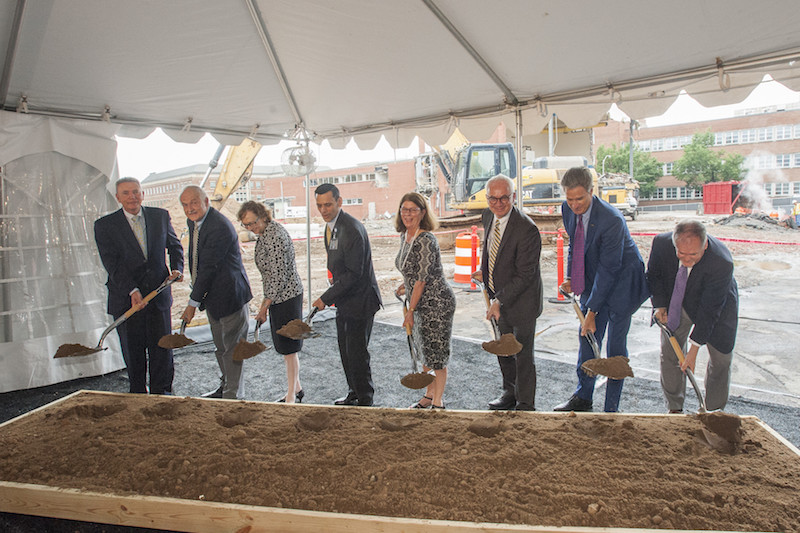
The groundbreaking ceremony for VCU Health's new outpatient facility included (from left) George Emerson, a member of VCU Health System Authority Board of Directors; Gordon Ginder, M.D., director of VCU Massey Cancer Center; Marsha Rappley, M.D., CEO of VCU Health System Authority and vice president of health sciences at VCU; Michael Rao, Ph.D, president of Virginia Commonwealth University and VCU Health System; Deborah Davis, CEO of VCU Hospitals and Clinics and vice president for clincal affairs at VCU; Peter Buckley, M.D., dean of the VCU School of Medicine and executive vice president for medical affairs at VCU Health; Harry R. Thalhimer, MCV Foundation chairman of the board; and Larry Little, vice president of support services and planning, VCU Health System. Image; VCU
HDR and Hourigan Construction are design-build partners on the project’s Building Team that also includes Ventana, which will design, manufacture, and install the building’s exterior wall systems, whose skin will consist of punched openings, flat curtainwall, saw-toothed curtainwall, and glass guardrails.
VCU is definitely in expansion mode right now. In May, the university, in joint venture with Sheltering Arms Hospital, began construction on a 200,000-sf, $119 million Rehab Institute within 25 acres of the West Creek Medical Park that will have 114 beds when it opens in 2020. (Hourigan Construction and HDR are working together on this project, too.) Earlier this month, the university broke ground on a $93 million 133,000-sf Engineering Research Building, whose design will emphasize collaboration. (Richmond-based architecture firms Baskervill and Smith McClane Architects, and Boston-based firm Goody Clancy, designed this facility. Washington, D.C.-based Page/SST Planners designed the lab spaces.)
Related Stories
Retail Centers | Mar 10, 2015
Retrofit projects give dying malls new purpose
Approximately one-third of the country’s 1,200 enclosed malls are dead or dying. The good news is that a sizable portion of that building stock is being repurposed.
University Buildings | Feb 23, 2015
Future-proofing educational institutions: 5 trends to consider
In response to rapidly changing conditions in K-12 and higher education, institutions and school districts should consider these five trends to ensure a productive, educated future.
University Buildings | Feb 20, 2015
Penn strengthens campus security by reviving its surrounding neighborhood
In 1996, the University of Pennsylvania’s sprawling campus in Philadelphia was in the grip of an unprecedented crime wave. But instead of walling themselves off from their surrounding neighborhoods, the school decided to support the community.
University Buildings | Feb 18, 2015
Preparing for the worst: Campus security since Virginia Tech
Seven years after the mass shootings at Virginia Tech, colleges and universities continue to shake up their emergency communications and response capabilities to shootings and other criminal threats.
University Buildings | Feb 17, 2015
BD+C exclusive: How security is influencing campus design and construction
Campus crime—whether real or perceived—presents Building Teams with more opportunities for early-stage consultation with university clients.
Architects | Feb 11, 2015
Shortlist for 2015 Mies van der Rohe Award announced
Copenhagen, Berlin, and Rotterdam are the cities where most of the shortlisted works have been built.
| Jan 7, 2015
University of Chicago releases proposed sites for Obama library bid
There are two proposed sites for the plan, both owned by the Chicago Park District in Chicago’s South Side, near the university’s campus in Hyde Park, according to the Chicago Sun-Times.
| Jan 2, 2015
Construction put in place enjoyed healthy gains in 2014
Construction consultant FMI foresees—with some caveats—continuing growth in the office, lodging, and manufacturing sectors. But funding uncertainties raise red flags in education and healthcare.
BIM and Information Technology | Dec 28, 2014
The Big Data revolution: How data-driven design is transforming project planning
There are literally hundreds of applications for deep analytics in planning and design projects, not to mention the many benefits for construction teams, building owners, and facility managers. We profile some early successful applications.
| Dec 28, 2014
AIA course: Enhancing interior comfort while improving overall building efficacy
Providing more comfortable conditions to building occupants has become a top priority in today’s interior designs. This course is worth 1.0 AIA LU/HSW.



